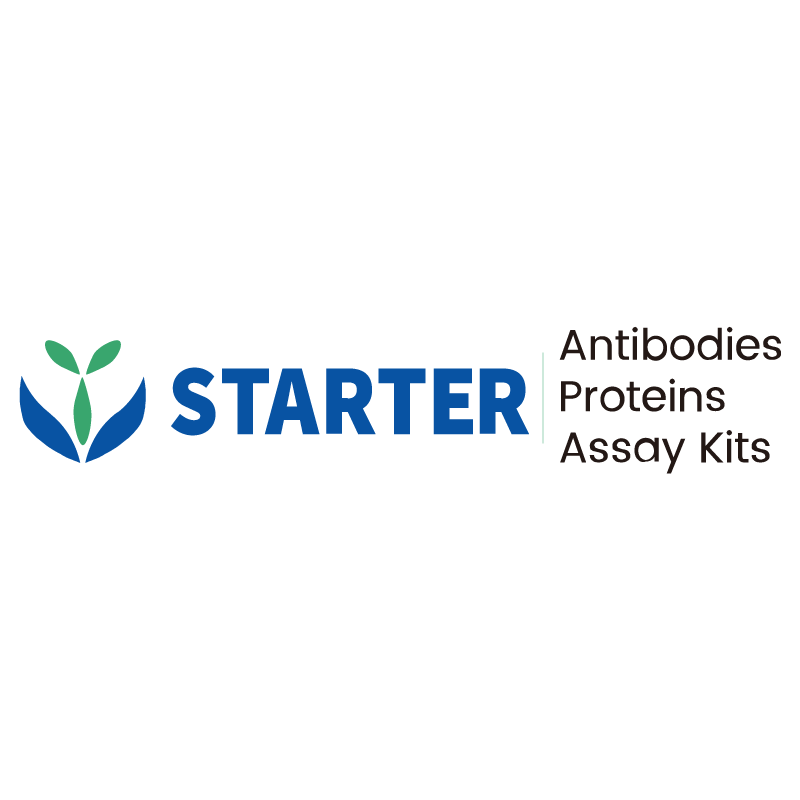WB result of CDK8 Recombinant Rabbit mAb
Primary antibody: CDK8 Recombinant Rabbit mAb at 1/1000 dilution
Lane 1: K562 whole cell lysate 20 µg
Lane 2: SW480 whole cell lysate 20 µg
Lane 3: HCT 116 whole cell lysate 20 µg
Lane 4: HT-29 whole cell lysate 20 µg
Lane 5: HeLa whole cell lysate 20 µg
Secondary antibody: Goat Anti-rabbit IgG, (H+L), HRP conjugated at 1/10000 dilution
Predicted MW: 53 kDa
Observed MW: 55 kDa
Product Details
Product Details
Product Specification
| Host | Rabbit |
| Antigen | CDK8 |
| Synonyms | Cyclin-dependent kinase 8; Cell division protein kinase 8; Mediator complex subunit CDK8; Mediator of RNA polymerase II transcription subunit CDK8; Protein kinase K35 |
| Immunogen | Recombinant Protein |
| Location | Nucleus |
| Accession | P49336 |
| Clone Number | S-1627-70 |
| Antibody Type | Recombinant mAb |
| Isotype | IgG |
| Application | WB, ICC |
| Reactivity | Hu, Ms, Rt |
| Positive Sample | K562, SW480, HCT 116, HT-29, HeLa, NIH/3T3, RAW264.7, mouse testis, rat testis |
| Predicted Reactivity | Sq, Mk, C. aethiops, Rb |
| Purification | Protein A |
| Concentration | 0.5 mg/ml |
| Conjugation | Unconjugated |
| Physical Appearance | Liquid |
| Storage Buffer | PBS, 40% Glycerol, 0.05% BSA, 0.03% Proclin 300 |
| Stability & Storage | 12 months from date of receipt / reconstitution, -20 °C as supplied |
Dilution
| application | dilution | species |
| WB | 1:1000 | Hu, Ms, Rt |
| ICC | 1:500 | Hu |
Background
CDK8 (cyclin-dependent kinase 8) is a serine/threonine kinase that plays a crucial role in regulating DNA transcription and cell cycle progression. It forms a module with Cyclin C (CCNC), Med12, and Med13, which associates with the Mediator complex to modulate gene transcription. CDK8 phosphorylates the C-terminal domain of RNA polymerase II, influencing transcriptional elongation. In cancer, CDK8 acts as a positive regulator of oncogene-induced proliferation by recruiting pTEF-B and BRD4 to oncogenic genes, promoting efficient transcriptional elongation. However, it can also inhibit Mediator-dependent super-enhancer driven transcription in acute myeloid leukemia (AML), suggesting its role may vary depending on the oncogenic context. Additionally, CDK8 is often amplified in colorectal cancer, where it modulates beta-catenin activity, contributing to tumor progression.
Picture
Picture
Western Blot
WB result of CDK8 Recombinant Rabbit mAb
Primary antibody: CDK8 Recombinant Rabbit mAb at 1/1000 dilution
Lane 1: NIH/3T3 whole cell lysate 20 µg
Lane 2: RAW264.7 whole cell lysate 20 µg
Lane 3: mouse testis lysate 20 µg
Secondary antibody: Goat Anti-rabbit IgG, (H+L), HRP conjugated at 1/10000 dilution
Predicted MW: 53 kDa
Observed MW: 55 kDa
WB result of CDK8 Recombinant Rabbit mAb
Primary antibody: CDK8 Recombinant Rabbit mAb at 1/1000 dilution
Lane 1: rat testis lysate 20 µg
Secondary antibody: Goat Anti-rabbit IgG, (H+L), HRP conjugated at 1/10000 dilution
Predicted MW: 53 kDa
Observed MW: 55 kDa
Immunocytochemistry
ICC shows positive staining in HCT116 cells. Anti- CDK8 antibody was used at 1/500 dilution (Green) and incubated overnight at 4°C. Goat polyclonal Antibody to Rabbit IgG - H&L (Alexa Fluor® 488) was used as secondary antibody at 1/1000 dilution. The cells were fixed with 4% PFA and permeabilized with 0.1% PBS-Triton X-100. Nuclei were counterstained with DAPI (Blue). Counterstain with tubulin (Red).


